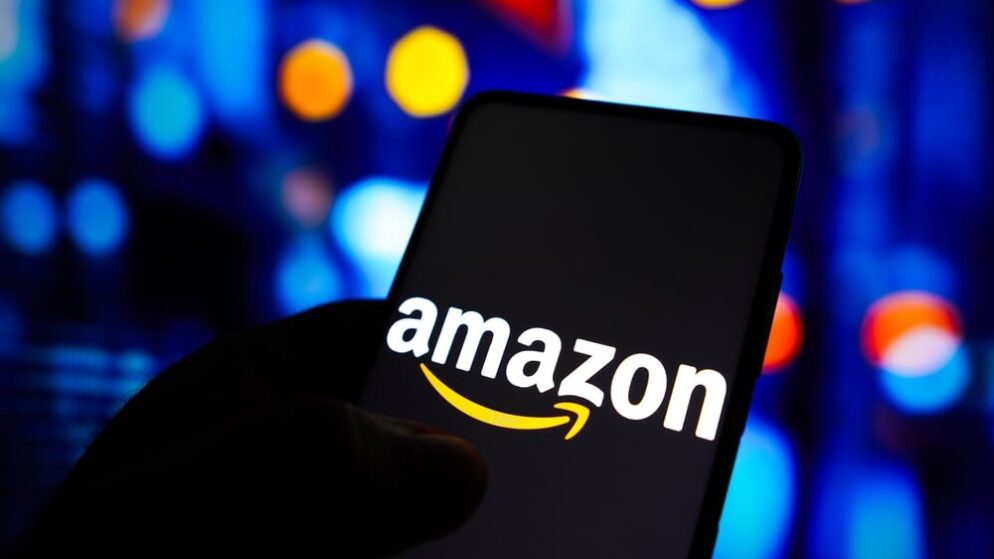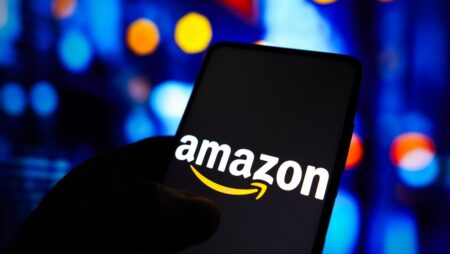

E-commerce giant Amazon has rejected accusations that it profits from illegal gambling through third-party social casino apps, asking a judge to dismiss a proposed class action lawsuit.
At the heart of the lawsuit lies the case of Steve Horn, a Nevada resident, alleging addiction and financial losses after playing social casino apps available on the Amazon Appstore. According to a Reuters report, Mr. Horn argued in November 2023 that Amazon’s role in providing a platform for these games, coupled with its 30% revenue share, makes it an active participant in illegal gambling activities.
The lawyers for Amazon at Perkins Coie said federal law bars consumer lawsuits and asked the U.S. District Judge Robert Lasnik for a stay pending similar cases in courts of appeal.
Lawsuits Claim Amazon’s“Dangerous Partnership” with Social Casino Apps
The first in a series of lawsuits against Amazon was filed by Steve Horn who said he had become addicted to online casino games. In his lawsuit, he asserted that the e-commerce giant had engaged in a dangerous collaboration with social casinos by providing over 30 illegal casino apps to customers.
In November 2023, five individuals filed a similar lawsuit in the U.S. District Court for the Western District of Washington, alleging that Amazon facilitates illegal gambling by allowing social casino apps on its App Store. Social casino apps allow users to play simulated casino games like online slots and poker to earn virtual currency, which cannot be converted into real money.
The plaintiffs argue that these apps rely on the same psychological mechanisms that make traditional online gambling addictive. By taking a 30% commission on all App Store revenue, they claim Amazon profited from “illegal gambling.”
Amazon is officially party to the lawsuit along with ten social casino app developers including DoubleDown, Playtika, and High 5 Casino. But their complaint largely focuses on Amazon’s 30% share of all transactions within mobile apps, claiming it has “little incentive to put a stop to this harmful and illegal behavior.”
Plaintiffs contended social casino apps are essentially unregulated, slot-like games that rely on similar psychological tricks to hook users and encourage excessive spending. These supposedly lawful apps lead thousands into crippling debt and gambling addiction without supportive resources available.
Led by the Chicago-based Edelson, the lawsuit pointed to several studies revealing links between social casino gaming and gambling disorders. Researchers also worry their popularity is getting players, including youth, used to gambling mechanics for future profit.
By promoting these apps for substantial revenue, attorneys argued Amazon maintains a dangerous partnership eroding consumer protection laws in exchange for profit. They sought class action status for the case to include all social casino app users in the U.S. who experienced financial and mental damages.
Amazon’s Defense
In a motion to dismiss filed on January 3rd, Amazon lawyers hinged their defense on several key arguments. First, the company invoked Section 230 of the Communications Decency Act (CDA), a federal law granting online platforms immunity from liability for third-party content. Amazon argues that it merely hosts the apps as a distributor, not as a participant in their content or operations.
Second, if the Section 230 argument fails, Amazon proposes a stay in the proceedings. Their reasoning: similar lawsuits are currently pending against Apple, Google, and Meta (formerly Facebook), all facing accusations related to social casino apps. Amazon contends that awaiting rulings in those cases, particularly the Ninth Circuit Court of Appeals, would provide valuable legal precedent and potentially render Mr. Horn’s case moot.
Lawyers for Amazon also argued that social casino games are legal under federal and Washington state law. Players do not risk or win actual money, so it does not constitute gambling. Courts have consistently ruled that virtual tokens have no monetary value.
The legal defense also noted that Amazon conducts regular audits and reviews to ensure apps follow all guidelines before publishing them on the App Store. Social casino apps fully comply with policies prohibiting illegal activity. In the eyes of the lawyers for the e-commerce giant, Amazon should not face liability for developers’ purported violations.
Amazon Says Has No Duty to Protect Third-Party Users
Amazon insists that tech companies have no legal duty to protect users from potential harms of third-party apps. Courts have refused attempts to expand liability to platforms merely hosting or selling legal products.
While Amazon aims to dismiss social casino liability, legal debates around questionable gambling are becoming commonplace. Most notably, high-stakes poker pro Phil Ivey fought bitter lawsuits for years after Crockfords Casino in the UK and Borgata Casino in Atlantic City accused him of cheating at baccarat using edge sorting techniques.
A judge recently ruled Borgata can recoup $10 million from his winnings in their decade-long legal battle. It’s one of several ongoing cases explored fully in this analysis.
The contexts are different, Ivey’s story highlights the legal complexity as courts decide fault around advantage play deemed morally questionable by some yet technically legal. Similarly, questions around social casinos’ psychological tactics could receive unprecedented examination if Amazon’s motion fails.
If the lawsuit proceeds, Amazon warns it could spur many similar complaints about various App Store offerings. They urge the court to exercise discretion and dismiss the “copycat” case. Allowing liability for lawful third-party apps would lead to endless, frivolous lawsuits.
Social Casino Usage Growing
Despite the pending legal challenge, social casino apps remain enormously popular worldwide. Sensor Tower estimates global user spending exceeded $6 billion last year alone. Gambling addiction experts also report surging treatment requests related to simulated gambling apps.
While Amazon downplays responsibility, some regulators increasingly scrutinize the links between technology and potentially harmful behaviors. Legal questions around social casinos will likely continue pending legislation addressing tech accountability.
Wrap-Up
Amazon is accused in the lawsuit of assuming the role of a financial institution for social casino apps that were known to be unlawful. In its filing on Thursday, Amazon expressed concerns that proceeding with the case at this time would cause hardship for all parties involved. The company stated that it intends to present additional arguments against the allegations in due course.



